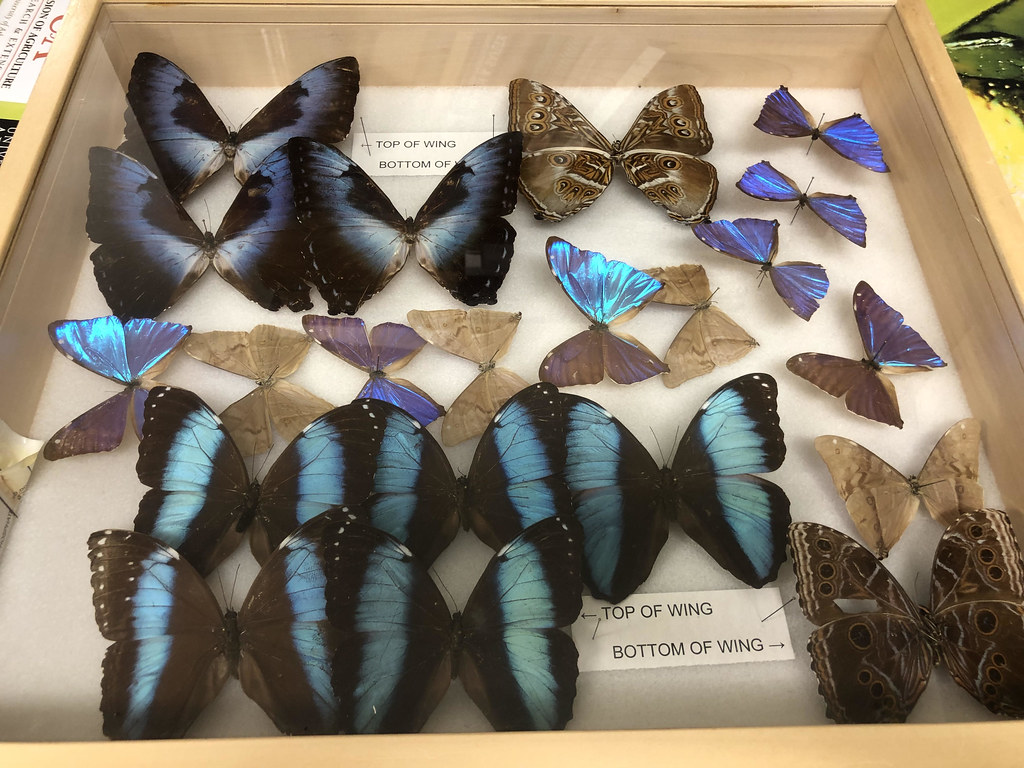University of Arkansas Arthropod Museum moves collection to roomier home
By Sarah Cato
U of A System Division of Agriculture
Fast facts
- UA Arthropod Museum moving to 1580 Mitchell St. in Fayetteville
- Museum contains more than 1,000 drawers of pinned insects
- Move scheduled for spring 2019
(575 words)
FAYETTEVILLE, Ark. – The thousands of shelled, winged and multi-legged arthropods squeezed into a room in the University of Arkansas’ agriculture building will soon have roomier digs from which to feed to curiosity and stoke the awe of visiting schoolkids and adults.

The Arthropod Museum is a massive collection of more than 1,000 drawers, each containing anywhere from a handful to dozens of insects. Some come from exotic locations around the world, others are species that are found only in the Ozarks. Most of the collection is comprised of beetles, but visitors will also see butterflies, scorpions, roaches and other creatures. The museum’s collection is an educational tool and is often used in outreach events in elementary schools across northwest Arkansas. Its diversity and size make the Arthropod Museum an irreplaceable asset for education and research.
“The specimens and the data they represent hold countless stories about insects throughout the state, and those specimens are used by researchers trying to manage insect pests or discover new species,” said Robert Wiedenmann, professor of entomology for the University of Arkansas System Division of Agriculture and the Bumpers College of Agricultural, Food and Life Sciences.
“The collection of insects in the Arthropod Museum is a vital resource, on par with the university’s library.”
The collection’s home is cramped, with narrow aisles making it difficult to host visitors. However, the Arthropod Museum will now be housed at 1580 Mitchell Street, right off of Razorback Road in Fayetteville.
“Part of the motivation for this move was that the museum space we have now is not very accessible,” said Ken Korth, department head for the Department of Entomology and Plant Pathology. “The new space will be much improved in terms of accessibility for small groups.”
The move will take place this spring and the museum will share the building with the biology department’s herbarium as well as offices for the College of Education and Health Professions.
“Insects help the naturally curious from age four to 94 to discover the natural world,” Wiedenmann said, “and the new home for the museum will make the collection much more accessible to school children as well as the general public.”
About the Division of Agriculture
The University of Arkansas System Division of Agriculture’s mission is to strengthen agriculture, communities, and families by connecting trusted research to the adoption of best practices. Through the Agricultural Experiment Station and the Cooperative Extension Service, the Division of Agriculture conducts research and extension work within the nation’s historic land grant education system.
The Division of Agriculture is one of 20 entities within the University of Arkansas System. It has offices in all 75 counties in Arkansas and faculty on five system campuses.
Pursuant to 7 CFR § 15.3, the University of Arkansas System Division of Agriculture offers all its Extension and Research programs and services (including employment) without regard to race, color, sex, national origin, religion, age, disability, marital or veteran status, genetic information, sexual preference, pregnancy or any other legally protected status, and is an equal opportunity institution.
Media Contact: Fred Miller
U of A Division of Agriculture
Arkansas Agricultural Experiment Station
(479) 575-5647
fmiller@uada.edu
Related Links